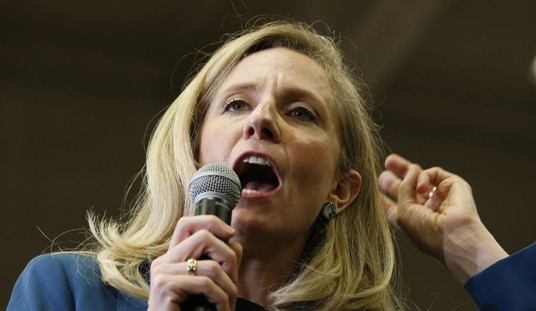Politico analyzes the strained relations between the Obama administration and Turkey, which provides one potential explanation for the schizophrenic White House response to the various crises in the Middle East. When Barack Obama took office, he pledged to bring the US closer to Turkey, but that has been a moving target, so to speak. While Obama tried to tighten ties between Washington and Ankara, Prime Minister Recep Tayyip Erdogan was moving Turkey closer to Iran and the Arab states of the Middle East, for a variety of reasons:
The president and his aides have cultivated a relationship with the nation from the earliest days of his administration. Acknowledging the tension that followed the Iraq war, which Turkey opposed, Obama pledged a fresh start.
“You will have a partner in the United States,” he declared in a speech during a two-day visit to Ankara in April 2009.
Yet when American allies like England and France called for intervention to stop Qadhafi’s onslaught against pro-democracy rebels, Turkey strongly opposed military action. That stance put Turkey at odds with much of the rest of the Western world, particularly the United States.
“Military intervention by NATO in Libya or any other country would be totally counterproductive,” Turkey’s Prime Minister Recep Tayyip Erdogan said just before the military campaign began. “In addition to being counterproductive, such an operation could have dangerous consequences.”
Hugh Pope, a regional expert at the International Crisis Group, said Turkey “has an ambition for a high-minded, pro-democracy position on the Middle East,” but other factors were likely in play. In Libya, he said, Turkey “was, and is, constrained by enormous individual interests: 25,000 workers [in Libya], more than $15 billion in outstanding contracts [and] a public opinion that is enormously skeptical of Western intentions in the Middle East.”
The effort to chase Turkey might explain some of the headscratching moments from the last two months. Obama appeared gung-ho to get rid of a US ally in Egypt when unrest began in Cairo, demanding a “transition” after eight days of remarkably peaceful demonstrations. It took twice as long for Obama to demand Moammar Gaddafi’s exit from Libya, even though his government had resorted to violence much earlier. It took NATO four weeks to decide what to do about a no-fly zone, by which time the point was nearly moot, as Gaddafi’s troops stormed Benghazi, the major rebel stronghold.
Obama has also been reluctant to demand that Bashar Assad step aside in Syria even after days of regime forces firing on unarmed demonstrators. Perhaps that can also be explained by Obama’s pursuit of Turkey and Erdogan:
Turkish Prime Minister Recep Tayyip Erdogan called for reforms in Syria at a press conference on Monday.
Erdogan said he spoke to Syrian President Bashar Assad, telling him to answer the public’s calls and adopt a reformist approach. He added that Assad is working on lifting emergency rule and restrictions on political parties.
Assad says he’ll announce an “important decision” in two days:
Syrian Vice President Farouq al-Shara said on Monday President Bashar al-Assad would announce important decisions that will “please the Syrian people” in the next two days.
Shara was speaking to Lebanese Hezbollah’s al-Manar television. The station did not give further details. Assad has been facing the biggest challenge to his 11-year rule after two weeks of anti-government protests spread across the country.
Meanwhile, th0ugh, the only “important decision” taking place on the streets of Deraa has to do with pulling triggers:
Syrian security forces opened fire on hundreds of demonstrators chanting against emergency laws in the southern city of Deraa on Monday, a witness said.
Why would it take two days to announce reforms? It sounds as though Assad wants a little more time to prep the battlefield. He’s murdering unarmed civilians in the street, and Erdogan — who objects to the NATO effort in Libya supposedly because of civilian casualties — is enabling Assad by keeping the West off of his back.
Turkey is a critical nation for the West, so it’s within our interest to do our best to keep them close. However, if Erdogan is insisting on defending and befriending thugocracies and radical Islamist regimes, then perhaps we won’t get much from that relationship anyway.








Join the conversation as a VIP Member